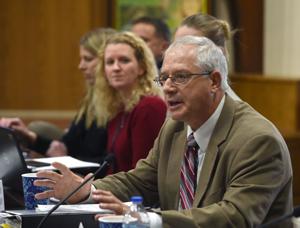
There’s good news for Central Oregon stargazers — the City of Sisters has been certified as an International Dark Sky Community . The recognition was given to the city for its work in transitioning to street lighting that is safe but also low-glare so residents can catch a glimpse of the night sky. Sisters is Oregon’s second International Dark Sky Community.
The City of Antelope (population 39), 31 miles northeast of Madras, was certified in December . Sisters (population 3,467) is also Oregon’s seventh International Dark Sky Place — the others include Sunriver, Eastern Lake County, Oregon Caves National Monument, Cottonwood Canyon State Park, Prineville Reservoir State Park and Antelope. Dark Sky Communities reach the designation by retrofitting poor lighting, updating light ordinances and other community initiatives.

Annual reports are also required to show that the public is also making progress in improving lighting in homes and businesses. The ordinances follow five principles recognized by Dark Sky International. These include targeted lighting, low-level lighting and controlled lighting to ensure that lights are only on when needed.
Dark Sky International works to reduce light pollution — that’s the glow from artificial light sources that renders nighttime stars invisible and can disrupt nocturnal ecosystems — through education and advocacy. “There are a lot of actions that go into the certification and they completed the series of requirements,” said Amber Harrison, the International Dark Sky Places program manager. “They don’t have to have all their public lighting in compliance right now, just a part of it, but they have to show a plan that in time all of it will be in compliance,” she said.
Officials in Sisters said in a release that achieving dark sky status will help market the town for tourism while also improving habitat for wildlife that depend on darkness. In its application for Dark Sky certification, Harrison said Sisters was dedicated to preserving dark night skies through community engagement and light conservation efforts. Education was also a big component of the application.
“They have shown a commitment to responsible outdoor lighting practices and principles. They have demonstrated it on the ground, they have passed ordinances. They are in the right environment and have shown they are willing to go all-in on their local lighting,” she said.
An astronomy program at Sisters High School in the early 2000s prompted local interest in dark sky communities and residents have since made efforts to reduce light pollution. Local astronomy clubs help spread information through social media and community events. Harrison said becoming a Dark Sky member brings attention to the community and can help astro- and eco-tourism.
Other benefits include improving conditions for wildlife and reducing glare that can affect human health. “It improves quality of life. And it lets the community know that its leadership is concerned about the well-being of residents and visitors,” she said.
Local resident Donna Moss, the treasurer of the Sisters Garden Club, said the certification will help boost the tourism industry in Sisters. “We have such a beautiful view of the night sky and lights obviously obscure that,” she said. “Anything that encourages people to visit is a positive.
You can have astronomers come in and view stars. It promotes the community.” Moss said she is always impressed by the view from her back deck at night.
“I recently went to look at the parade of planets. You could see Venus, Jupiter and Mars very clearly. The moon was up a little but when it’s dark you can see them that much better.
Occasionally I can see the space station go by. It’s fun to have that available to you.”.















